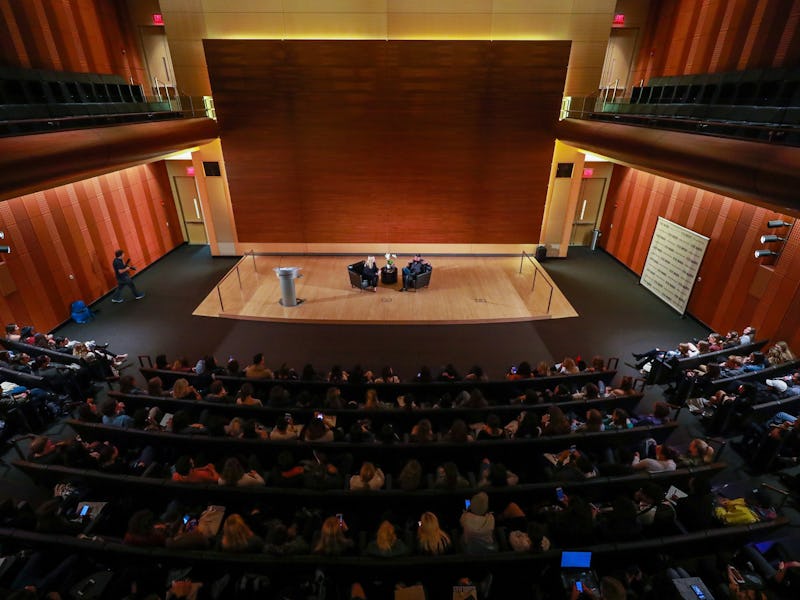The Surprising Reason We Shouldn't Use Laptops in Classrooms
More and more research backs up banning personal tech.

Step into any college lecture and you’ll find a majority of students typing out their notes on laptops. But a tendency to also use class time to scan social media or shop online has prompted a call to revert back to methods used before we had wifi: pen and paper.
In fact, a lot of contemporary research shows that college students actually learn less and get worse grades when they use technology in lectures, a recent article in the New York Times recounts. It’s easy to assume that this conclusion is based on the idea that the internet can provide an easy distraction, but the article bases its claims on another factor: the effect of typing.
Studies have shown that note-taking by hand can lead to better test performance.
It may seem that the ability to take notes faster would be beneficial to student learning, but experiments done at Princeton University and UCLA have shown the opposite. A group of students at the two schools were instructed to take notes at a lecture, and were randomly assigned either laptops or a pen and paper. The research showed that students with laptops took notes that were closer to what the lecturer actually said word for word, but that these students didn’t understand the ideas as well.
“We found that participants using laptops were more inclined to take verbatim notes than participants who wrote longhand, thus hurting learning,” the researchers concluded. “Even when allowed to review notes after a week’s delay, participants who had taken notes with laptops performed worse on tests of both factual content and conceptual understanding, relative to participants who had taken notes longhand.”
Basically, for students who take notes by hand, their brains need to first process the information heard in order to transfer material onto the paper, and also summarize it so they can keep up with the speed of the lecture.
Students who type are able to keep up with the professor’s lecturing speed and can transcribe virtually word for word, making them less likely to really process information as they go.
Additionally, it seems that laptops in lectures can impact people who aren’t even using them. A 2012 study concluded that “multitasking on a laptop poses a significant distraction to both users and fellow students.” So when you’re tweeting during class or checking the latest score results, you could be distracting the kid sitting in the row behind you.
These kinds of studies have led to a greater number of professors banning laptops in their classrooms. A law professor at Pace University wrote for the New York Times that his laptop ban resulted in improved student engagement and material comprehension.
“With constant eye contact, I could see and feel when they understood me, and when they did not. Energized by the connection, we moved faster, further and deeper into the material,” professor Darren Rosenblum wrote. “More important, after my class ends, many students continue to take notes by hand even when it’s not required.”
More professors have started to implement no-technology policies in the wake of these studies.